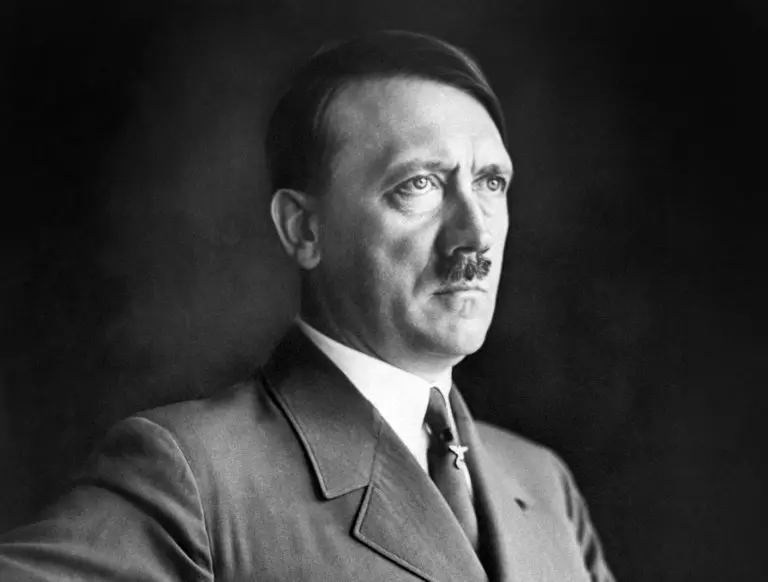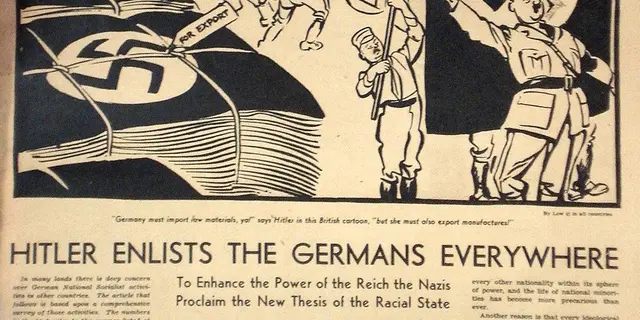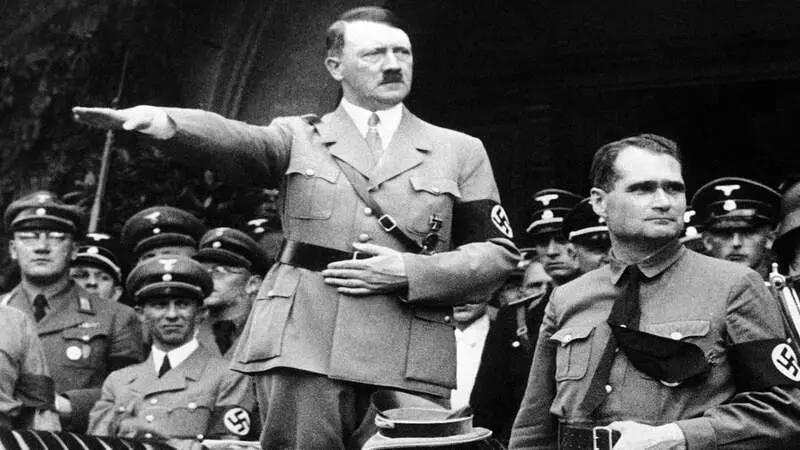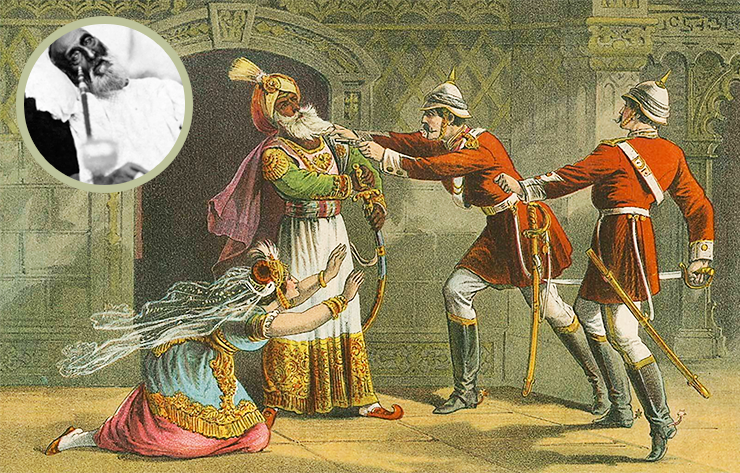We’ve all heard the story where an eleven-year-old German child overheard his parents discussing whether he should attempt suicide or kill the whole family. His father said, ‘Now the allies will do what we did to the handicapped and the Jews.’ The very next day, his father committed suicide in his office. His father was a Nazi and a big supporter of Adolf Hitler. Who was Hitler? How did he rule Germany and why did he hate the Jews? Let us know in the article below about Nazism and Hitler.
What is Nazism?
Under the leadership of Adolf Hitler, the fascist political movement known as the Nazis developed in Germany after World War I. Nazism promoted extreme nationalism, militarism, and expansionism while severely restricting individual freedom. The Nazis also believed that the Germans were descendants of the Aryans. He argued that because Jews, Slavs and other ethnic minorities were genetically inferior, they had no purpose in living in Germany. The Nazis opposed democratic political ideologies such as democracy, communism, socialism and others. Also, in theory and in practice, he opposed liberalism and any manifestation of individualism. Moreover, the Nazis resolved to create a peaceful, well-ordered and prosperous society for the Germans. They brought war, terrorism and mass murder.
After seizing political power by dubious means in 1933, Hitler prepared Germany for war. He reorganized the country, first in secret and then openly in violation of the Treaty of Versailles. Moreover, he allied with Mussolini, the fascist leader of Italy. Japan later became part of this alliance, becoming the Rome-Berlin-Tokyo axis. As war clouds loomed over the continent of Europe, Nazi propaganda was covertly spread throughout India by the Axis countries, particularly Nazi Germany.

Origin of the Weimar Republic
The First World War was fought between Germany with the Austrian Empire and against the Allies ie England, France and Russia, in which the Allies emerged victorious. A National Assembly established a democratic constitution with a federal form in Weimar. However, the terms the republic was forced to accept in the wake of Germany’s defeat at the end of World War I did not sit well with its own citizens. Many Germans blamed the humiliation at Versailles and the new Weimar Republic for the country’s war failure.
The conflict had severe psychological and economic effects on the entire continent. Europe turned from a creditor to a debtor. Supporters of the Weimar Republic faced criticism and were frequently attacked by conservative nationalists. Civilians are now subordinate to the soldiers. National pride and aggressive war propaganda gained importance.
The uprising of the Spartacist League, which led to the Bolshevik Revolution in Russia, coincided with the establishment of the Weimar Republic. The Spartacists founded the Communist Party of Germany. The economic crisis of 1923 increased political radicalism. France invaded Germany’s most important industrial region, the Ruhr, because Germany refused to pay war reparations. Germany responded by hastily producing paper currency. The value of the mark fell. The prices of things also increased. Moreover, hyperinflation was experienced.
Although it was built on sand, 1924 to 1928 saw considerable stability. Germany depended entirely on short-term loans, most of which came from the US. This support was discontinued when the Wall Street Exchange crashed in 1929. The German economy suffered badly. The fear of the proletariat gripped the working class and the middle class. The Weimar Republic had some flaws from the start:
- Fair representation
- Article 48 empowered the President to declare emergency, suspend civil liberties and rule by executive order.
Treaty of Versailles
On June 28, 1919, Germany and the Allies signed the Treaty of Versailles, officially ending World War I. Under the terms of the treaty, Germany was obliged to pay financial indemnities, disarmament, cede territory, and give up all of its colonies overseas.
Rise of Hitler and Nazism
Hitler was born in Austria in 1889. He received several medals for his courage during World War I.
Hitler was stunned by the defeat of Germany. He was angry with the Treaty of Versailles. As a member, he changed the name of the German Workers’ Party to the National Socialist German Workers’ Party. The Nazi Party later became the name of this group. It was only during the Great Depression that Nazism developed into a wider movement. Nazi propaganda cherished dreams of a better tomorrow. Hitler was a charismatic and persuasive speaker. He assured them that a strong country would provide employment for all.
On January 30, 1933, Hitler rose to the helm of the Cabinet of Ministers. Hitler then set out to destroy the institutions of democracy. The Fire Decree on February 28, 1933 curbed freedom of speech, press, and assembly. Communists were hastily transferred to newly built detention camps. Every political party was declared illegal. Special surveillance and security units were set up to keep the population under control and rule with impunity.

Hitler’s beliefs about the Jews
Religious conflict – For many years, there has been conflict between Christianity and Judaism, which partly contributed to the rise of antisemitism in Europe.
Anti-Semitism in Vienna – Hitler spent part of his early years in Vienna, Austria, where anti-Semitism was widely accepted and practiced. He may be influenced by some of the ideologies prevalent in that setting.
Jewish Economic Power – At the beginning of World War I, most banks, financial institutions and large corporations were under Jewish control. Hitler blamed Jewish capitalism as the cause of Germany’s defeat in the war, its economic collapse, and the misguided policies of the Weimar Republic.
Conspiracy Theory – According to Hitler the Jews were plotting to take over the whole world and would stab the Germans at will.
Biological differences – Hitler and many other Nazis believed that the Aryan (German) race was superior and that Jews were so degraded as to be almost non-human. He believed that by exterminating the Jewish race, he would be doing the world a favor.
Youth in Nazism
Hitler believed that a powerful Nazi society could be created by teaching Nazi philosophy to the youth.
German teachers were provided in every school. Desirable and undesirable groups of children were differentiated. The books were also changed, and the purpose of the game in schools was to foster an aggressive and violent mindset. Moreover, the Jungvolk required ten year olds to enroll. In addition, all boys joined the “Hitler Youth” at age 14, and at age 18 they entered the labor force.

The Nazi cult of motherhood – women were encouraged to produce pure-blood Aryan children and to be good mothers. He was urged to produce many children.
The Nazi dictatorship carefully and frequently used language and the media to manipulate public opinion. They propagated anti-Semitism using films, images, radio, posters etc.
Crimes Against Humanity – People saw and understood the world through a Nazi lens. Sometimes Nazi preconceived notions about Jews spread among them as well.

Knowledge of the Holocaust – People didn’t know what had happened until the war was over. The Jews wanted the whole world to be aware of the horrors and hardships suffered during the Nazi killing campaigns. They only wanted to survive, even if only for a short time, to inform people about the Holocaust.









































